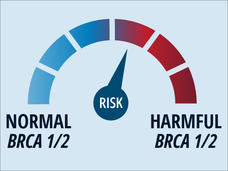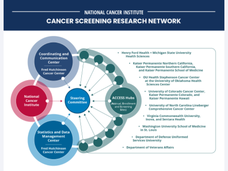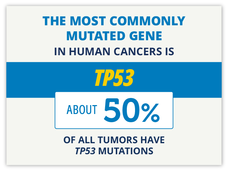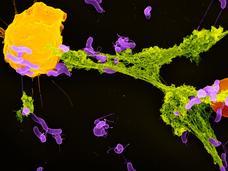April 2024 - Cancer Currents Blog
-
Approval of Elahere Expands Treatment Options for Some Advanced Ovarian Cancers
FDA approved mirvetuximab soravtansine-gynx (Elahere) to treat people with advanced, platinum-resistant ovarian cancer whose tumors overproduce a protein called FR-α. The full approval was based on the results of a large, randomized trial called MIRASOL, which showed Elahere improved survival for these people.
-
Scientists Link a Single Type of Bacteria to Colorectal Cancer
NCI-funded researchers have pinpointed a single type of the bacterium F. nucleatum that appears to fuel the development and growth of colorectal cancer. In mice, the bacterium, Fna C2, appeared to cause more adenomas to form in the large intestine and it was often found in human tumor samples.
-
Studies Assess Impact of Cancer Risk-Reduction Measures for People with BRCA Changes
For women with inherited changes in the BRCA1 or BRCA2 genes, regular MRI scans and undergoing a surgery called a salpingo-oophorectomy appear to lower their chances of dying from breast and ovarian cancer, according to results from two studies.
-
New on NCI’s Websites for April 2024
NCI periodically provides updates on new websites and other online content of interest to the cancer community. See selected content that has been added as of April 2024.
-
Drug Combination May Have Potential for Cancers with TP53 Mutations
Although TP53 mutations help drive the growth of most cancers, there are no FDA-approved therapies that target altered p53 proteins. Now a drug combination has shown promise in mice and is being tested in a clinical trial.
-
Stress-Induced Immune Changes May Help Cancer Spread
Stress-induced hormones called glucocorticoids can cause biological changes—in the form of sticky traps called NETs—that help create hospitable environments for cancer cells to form metastatic tumors, according to new research done largely in mice.




